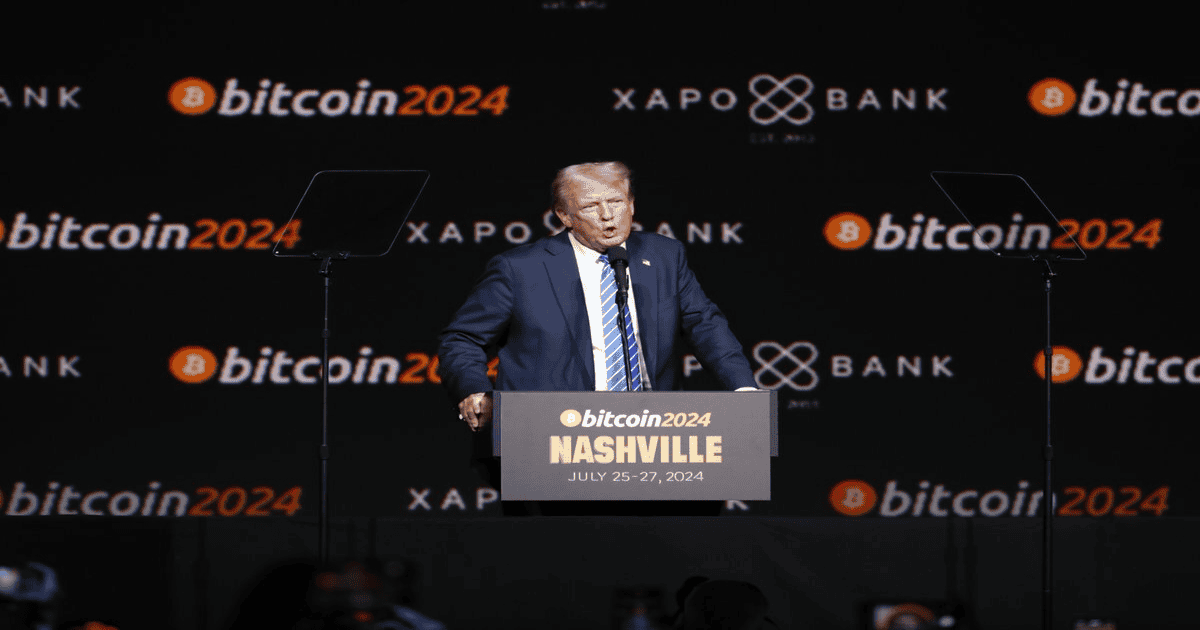Unprecedented: US Government Seals GDP Data on Bitcoin & Solana Blockchains

The U.S. government, through its Commerce Department, has officially begun publishing gross domestic product (GDP) data on public blockchains. This landmark announcement, reported by Bloomberg on a Thursday, signifies a profound shift, bringing blockchain technology into the core of America’s economic reporting. The data is now accessible on nine different networks, including prominent cryptocurrencies like Bitcoin, Ethereum, and Solana, marking a significant departure from previous government skepticism towards digital assets.
Commerce officials have clarified that this blockchain rollout is intended as “another avenue” for data distribution, not a replacement for traditional economic releases. However, the move carries substantial symbolic weight, as it effectively bestows a government seal of approval on a technology once viewed with deep caution in Washington. Mike Cahill, CEO of Douro Labs, confirmed his two-month collaboration with the Commerce Department on this initiative, stating, “With today’s announcement we are now in a world where government data lives on blockchains, and market participants can participate in real time.”
The initiative is a clear reflection of President Donald Trump’s administration’s comprehensive embrace of blockchain and cryptocurrency. This contrasts sharply with the cautious stance of the prior administration under former President Joe Biden, which often clashed with crypto exchanges and imposed restrictions on digital assets. Since taking office, President Trump has actively integrated Bitcoin into government policy, establishing a U.S. Bitcoin reserve, stockpiling various coins like Ether and Solana, signing legislation regulating stablecoins, and appointing crypto-friendly regulators who ended enforcement actions against companies such as Coinbase. The Trump family has also expanded its presence in the digital asset space, backing ventures like World Liberty Financial.
Commerce Secretary Howard Lutnick spearheaded this project, reportedly informing President Trump earlier in the week that statistics would be issued via blockchain “because you are the crypto president.” Lutnick has also previously suggested reforms to GDP reporting, including removing the impact of government spending. The growing political influence of the crypto industry is evident through significant financial contributions, with firms donating heavily to Trump’s reelection campaign and contributing over $133 million to super PACs supporting pro-crypto candidates in 2024, according to OpenSecrets.
Technically, the blockchain initiative involves posting cryptographic hashes of GDP data, which act as digital fingerprints to verify the information’s integrity and authenticity. While initially limited in scope, Commerce Department officials confirmed the Trump administration’s intent to expand the program further. The data is being published directly on blockchain networks with the crucial assistance of Chainlink, a prominent “oracle” provider, which has hailed this collaboration as a “key milestone” for government adoption of blockchain technology. Following this announcement, the price of Chainlink’s native LINK token surged by over 6%. Leading U.S. cryptocurrency exchanges, including Coinbase and Gemini, also provided assistance to the Commerce Department in implementing this change. Chainlink’s technology is widely trusted and used by major financial entities such as SWIFT, BNY Mellon, BlackRock, Visa, and Mastercard.
Beyond economic reporting, the Commerce Department’s embrace of public blockchains aligns with other agencies experimenting with crypto technology. The Department of Homeland Security has explored blockchain for airport passenger screening, and California’s DMV has digitized car titles using crypto, as reported by Bloomberg. These instances underscore a broader trend of integrating distributed ledger technology into various governmental functions.
This initiative arrives as the U.S. economy demonstrated stronger-than-expected growth, with a 3.3% expansion in the second quarter, marking the best quarter since Q3 2023, and consumption coming in at 1.6%. This latest GDP figure was revised upwards from an initial 3%. Economist Heather Long noted that while the economy is showing signs of slowing, it “clearly” continues to grow. Despite this relatively robust economic data, the Federal Reserve is still widely anticipated to implement a rate cut in the upcoming month.
As President Trump solidifies his image as the “crypto president,” the adoption of blockchain for GDP distribution signals a profound and enduring shift in U.S. economic policy. It further cements Bitcoin and the broader blockchain ecosystem as powerful political and financial forces within Washington, indicating a future where decentralized technologies play an increasingly central role in government operations and economic transparency.
Recommended Articles
Groundbreaking: US Government Stamps Official GDP Data onto Bitcoin and Solana Blockchains

The U.S. Commerce Department has begun publishing GDP data on public blockchains, including Bitcoin and Ethereum, markin...
Michael Saylor's Bitcoin Prophecies: From Tarantino Allusions to Fiat Collapse Warnings

Michael Saylor, co-founder of Strategy, continues his staunch Bitcoin advocacy through various creative campaigns, inclu...
US Government Makes History, Publishes GDP Data on Bitcoin Blockchain

The U.S. Commerce Department has begun publishing GDP data on public blockchains, including Bitcoin and Ethereum, signal...
Groundbreaking: US Government Stamps Historic GDP Data onto Bitcoin Blockchain!

The U.S. Commerce Department has begun publishing GDP data on public blockchains like Bitcoin and Ethereum, marking a si...
U.S. Government Makes History: GDP Data Now Living on Bitcoin Blockchain

The U.S. Commerce Department has begun publishing GDP data on public blockchains, including Bitcoin and Ethereum, markin...
U.S. Government Uploads GDP Data to Blockchain in Historic First

The U.S. Commerce Department has begun publishing GDP data on public blockchains, including Bitcoin and Ethereum, markin...
You may also like...
Boxing World Mourns Joe Bugner: Legend Dies at 75

The boxing world mourns the passing of Joe Bugner at 75, a legendary British-Australian heavyweight champion known for f...
Super Falcons Seize 10th WAFCON Title, Oshoala Faces Retirement Rumours
)
The Super Falcons of Nigeria clinched their record-extending 10th Women's Africa Cup of Nations title with a dramatic 3-...
Hilarious Heartbreak: Benedict Cumberbatch & Olivia Colman's 'The Roses' Takes On Divorce

A cinematic triptych highlights recent film releases, from Jay Roach's dark comedy "The Roses" re-evaluating modern marr...
Pure Gold! Liam Neeson & Pamela Anderson's Chemistry Ignites 'Naked Gun' Remake

Recent film releases offer a diverse cinematic experience, featuring Liam Neeson's surprising comedic turn in 'The Naked...
Cardi B Unfiltered: Superstar Dishes on New Album, Family & 'Bad Karma' in Explosive Billboard Feature!

Seven years after her debut, Cardi B is ready to launch her highly anticipated second album, "Am I the Drama?" The artis...
African Music Crowns Its Best: AFRIMA 2025 Nominees Unleashed!

The All Africa Music Awards (AFRIMA) 2025 has unveiled a record-breaking list of 343 nominees across 40 categories, foll...
Chrisley Family's Tumultuous Return: Post-Prison Confessions & New Reality Show Drama Unfold

The Chrisley family returns to television with their new Lifetime series, "The Chrisleys: Back to Reality," premiering S...
Bianca Censori's Daring Public Looks Spark Frenzy After Kanye West Revelation

My baby she ran away / But first she tried to get me committed / Not going to the hospital ’cause I am not sick I just d...